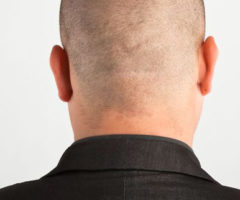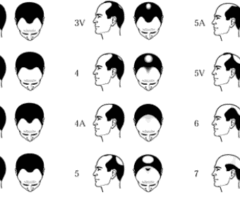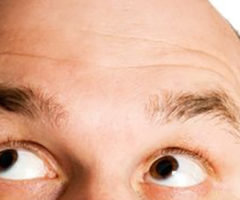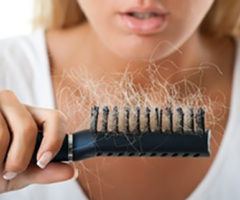Is It Safe to Use Lasers on My Head?
If you’re a Star Wars fan, the word “lasers” might conjure sci-fi-related imagery—maybe a bushy-haired Harrison Ford striking one of his iconic Han Solo poses, as he draws his laser pistol on Greedo of Tatooine?
Or maybe you think of hi-tech, military-grade weapons? Although there are plenty of non-destructive laser applications—especially in medicine—many people still think largely of sci-fi and weaponry when they think “lasers.”
If you’re suffering from hair loss, you may have heard the term, “Low-Level Laser Light Therapy for Hair Loss” (LLLT). Outside of movie magic, it’s completely understandable to wonder, “Is that real?” or “Is it safe?”
When you hear the term, you may envision the Hair Restoration Doctor zapping you with a missile-like device, sending your scalp into a hair-growing frenzy? Or maybe you’re hoping to take said laser “gun” home to zap your friends, seeing new hair pop up on unsuspecting appendages?
We’re sorry to disappoint, but LLLT is neither weapon-like nor miracle hair-maker. We do have some good news, though: With the iGrow and Theradome systems recommended by the Limmer Hair Transplant Center, you do get to wear a futuristic-looking helmet. And you do get to take the helmet home, to wear at your leisure. You won’t get to zap anybody with it, but if your friends see you, they might assume you’ve purchased some cool new videogame or virtual reality hardware. Feel free to create your own virtual identify while using either device.
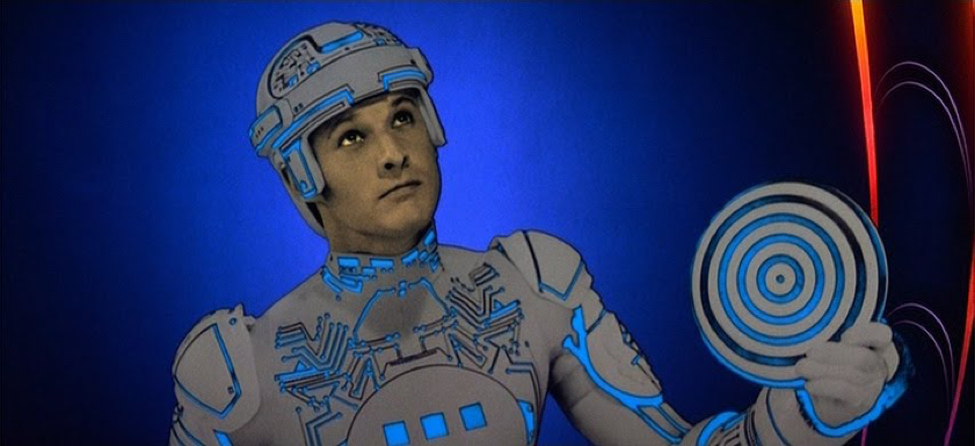
Is Low Level Light Therapy Safe?
Although LLLT is newer in the United States, practitioners in Europe and Asia have accrued decades’ worth of safety and efficacy data on LLLT through its use on thousands of patients. Though there isn’t mounds of clinical data at this time, it is an FDA approved device for treatment of pattern baldness in men and women.
LLLT has also been shown to have virtually no side effects. The consumer-grade 3R laser used in LLLT devices is no more lethal or harmful than the light used in a laser pointer or a CD player, hence the name “Low-level Laser.” In other words, you wouldn’t want to bring a laser helmet to a laser-gun showdown.
How Does LLLT Work?
LLLT devices can use both laser and LED light sources. The laser and the LED each emit light with a red wavelength. Each light is powerful enough to superficially penetrate the scalp; the LED creates more scattered diffusion, while the laser is more focused. The exact mechanism through which LLLT works isn’t completely understood; however, research suggests that LLLT light works by:
- Increasing blood and lymphatic circulation to the scalp
- Exciting the mitochondria and increasing cellular metabolism of hair follicles
Does LLLT Work?
The short answer is “yes.” LLLT has been shown to stimulate new hair growth in many patients. The technique has also been shown to be effective at decreasing hair loss.
In January, Lasers in Surgery and Medicine published a literature review of LLLT research conducted at the University of Miami in Florida. The researchers reviewed eleven studies conducted between 1960 and 2015, comprising 680 patients (444 males; 236 females).
The results of this review found “an overall improvement in hair regrowth, thickness, and patient satisfaction following LLLT therapy.”
As with any hair restoration technique, results can vary from patient to patient. At the Limmer Hair Transplant Clinic, we’re proud to offer the iGrow system and Theradome laser devices, both of which are safe for home, office, or even travel use.
If you suffer from male pattern baldness, contact the Limmer Hair Transplant Clinic. We offer a range of cutting-edge hair treatments to improve and restore a natural looking head of hair.






